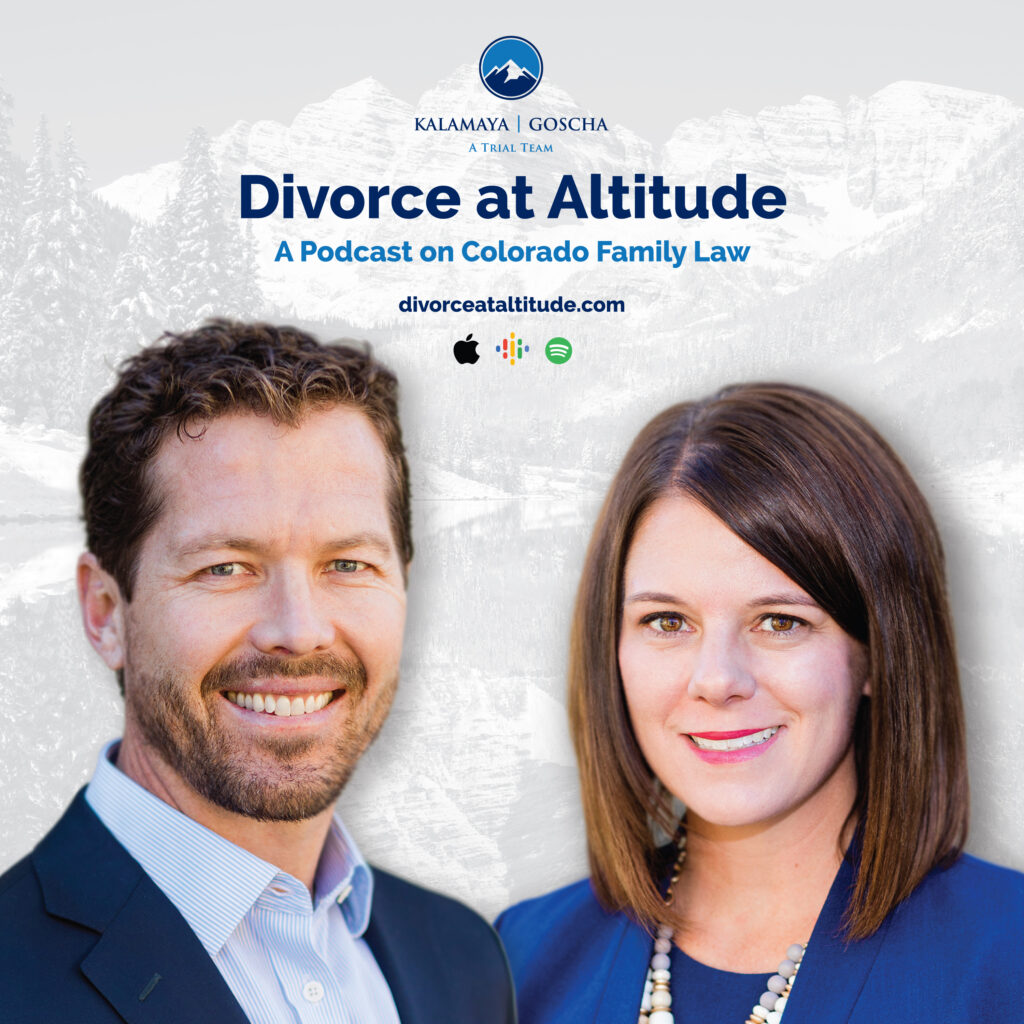On this latest episode of Divorce at Altitude, Ryan and Amy offer an in-depth analysis of spousal support laws and guidelines through a Colorado lens, discussing the role of income thresholds and individual earnings in determining maintenance. They also dissect a revealing Custody X Change study, providing our listeners with a comprehensive understanding of the comparative alimony landscape across the nation.
Navigating the discrepancies of spousal maintenance can be a daunting process, which is why they meticulously dissect case scenarios from various states, emphasizing the factors that influence both the duration and amount of maintenance awarded. With a focus on real-world implications, we shed light on the judicial discretion that can significantly alter outcomes in high-income and high-asset divorce cases. Moreover, they also tackle the pressing issue of inflation and how outdated laws fail to reflect current economic realities, advocating for vital legislative updates.
What is Divorce at Altitude?
Ryan Kalamaya and Amy Goscha provide tips and recommendations on issues related to divorce, separation, and co-parenting in Colorado. Ryan and Amy are the founding partners of an innovative and ambitious law firm, Kalamaya | Goscha, that pushes the boundaries to discover new frontiers in family law, personal injuries, and criminal defense in Colorado.
To subscribe to Divorce at Altitude, click here and select your favorite podcast player. To subscribe to Kalamaya | Goscha’s YouTube channel where many of the episodes will be posted as videos, click here. If you have additional questions or would like to speak to one of our attorneys, give us a call at 970-429-5784 or email us at info@kalamaya.law.
************************************************************************
DISCLAIMER: THE COMMENTARY AND OPINIONS ON THIS PODCAST IS FOR ENTERTAINMENT AND INFORMATIONAL PURPOSES AND NOT FOR THE PURPOSE OF PROVIDING LEGAL ADVICE. CONTACT AN ATTORNEY IN YOUR STATE OR AREA TO OBTAIN LEGAL ADVICE ON ANY OF THESE ISSUES.

